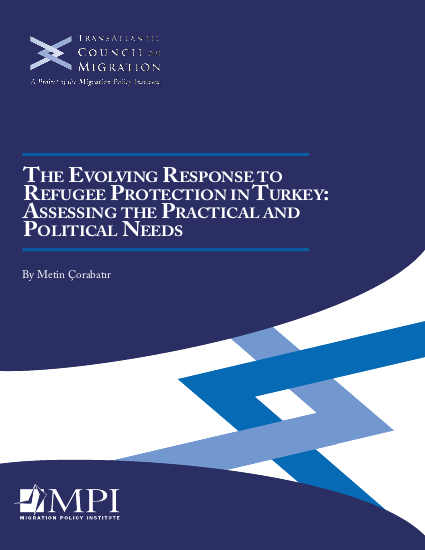
Turkey hosts more refugees than any other country in the world, having taken in more than 2.7 million refugees from neighboring Syria alone since the civil war began in 2011. Despite Turkey’s generous humanitarian approach, long-term integration prospects for these refugees remain limited.
Within the past year, several important policy developments have shaped the landscape for refugees. First, the Turkish government has taken a number of steps to bring its protection framework more closely in line with international standards (though differences remain), and has adopted new measures to provide Syrian refugees access to the labor market and education. The government also has become more open to accepting international aid and reducing constraints on the operations of international humanitarian organizations and other NGOs—a shift from its original stance of trying to meet the massive refugee needs on its own. But cooperation with the international community remains challenging in many respects. Turkey’s accord with the European Union, concluded six months ago, has proven notably difficult to implement.
This report traces the rapidly evolving reality and policy environment in Turkey, examining the current policy approach to managing the influx of Syrians. The report asks what is needed to ensure the long-term stability and success of both refugees and their host communities in Turkey, as well as what Turkey requires practically and politically to continue to provide protection and livelihood opportunities to Syrians, now and over the long term. The report also examines how countries in Europe and elsewhere could target their political and financial investments to maximize impact on Turkish capacity and willingness to provide meaningful protection. And it assesses whether the November 2015 joint action plan and March 2016 EU-Turkey deal provide a satisfactory basis for cooperation.
